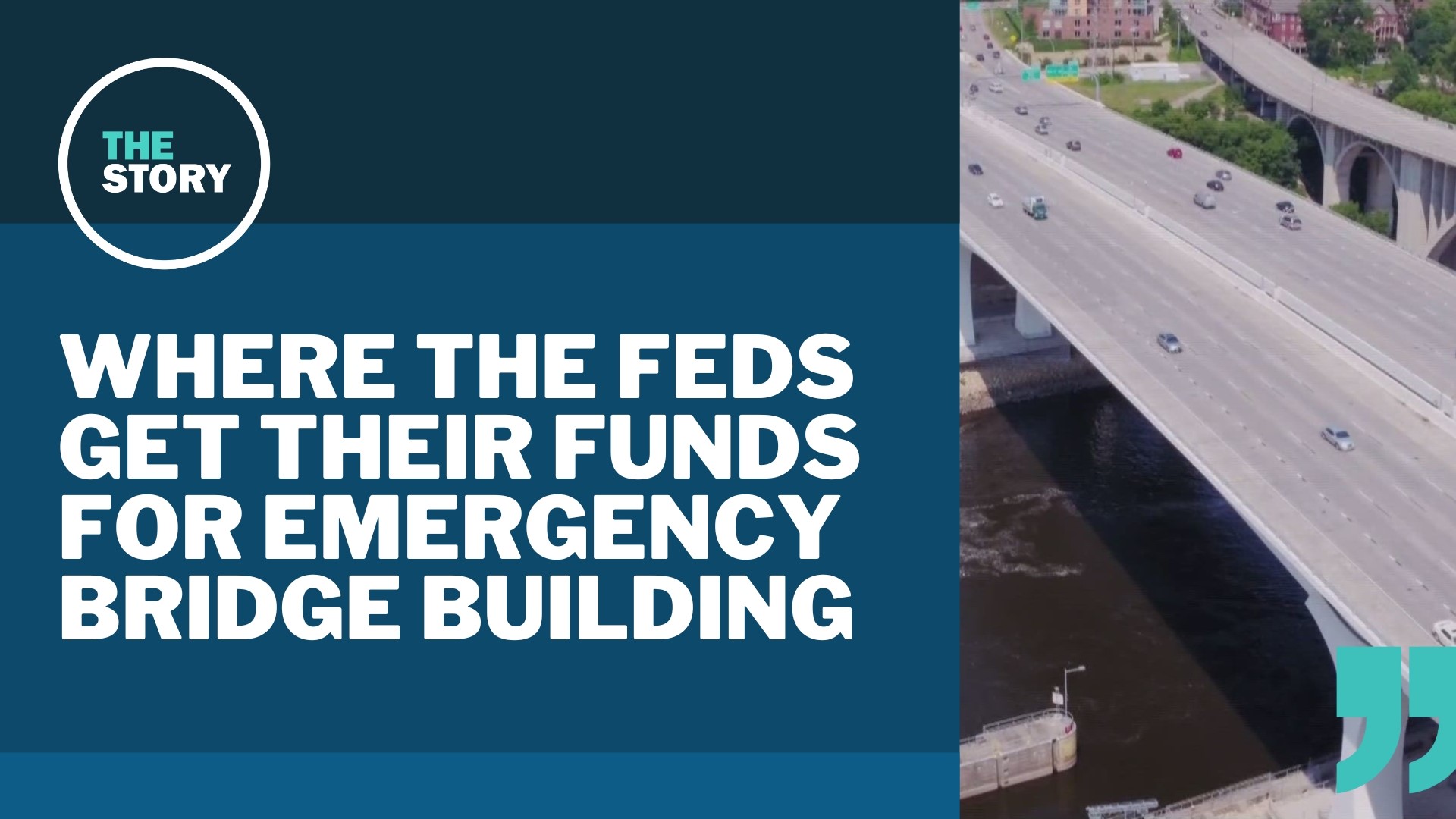PORTLAND, Ore. — Soon after the tragic collapse of the Francis Scott Key Bridge in Baltimore last week, President Joe Biden said he wants to fast-track the replacement process, and he wants the federal government to pay for it.
These kinds of megaprojects have been a hot topic in the past couple of years following the passage of Biden's signature Bipartisan Infrastructure Law, which allocated hundreds of billions of dollars to various federal programs and funds. Biden's pledge this week caused some KGW viewers to wonder about what Baltimore's situation might mean for other cities that are hoping to land their own slice of that funding, including Portland. One viewer sent this message to The Story team:
Something I wondered after the ship collision with the Baltimore bridge... since Oregon and Washington are hoping for federal dollars for our I-5 bridge project, will Baltimore's bridge replacement now get higher priority or completely take all available funds, since they have the emergency and we just have the aging bridge. I fear we may get shut out in the funding.
KGW reached out to the Interstate Bridge Replacement Program to ask about that possibility, and the office replied with a statement saying they "cannot speculate on how the administration will identify federal funding in response to this emerging need," adding that they're "confident we are competitive to meet the requirements of the federal grant programs we are pursuing."
Federal emergency funding
The Federal Highway Administration has an Emergency Relief program that can issue funding for cleanup and repairs after natural disasters or catastrophic failures like a major bridge collapse. When a smaller bridge carrying Interstate 5 over the Skagit River in Washington collapsed in 2013, money from that federal program covered almost all of the roughly $20 million replacement cost.
Maryland requested — and quickly received — $60 million from the fund this week to help with debris removal in Baltimore, and state officials said they plan to request more later.
There's no possibility of the Interstate Bridge Replacement project missing out on that source of funding, because it's not an emergency project, so it's not eligible to begin with.
U.S. Transportation Secretary Pete Buttigieg said last week that the highway relief fund has about $950 million available, but that's for disasters across the whole country. And the fund is normally only replenished at a rate of $100 million per year, so there's a practical upper limit to how much it can help for any one particular emergency.
Buttigieg declined to even guess at how much a replacement for the Key Bridge could cost, but the original cost about $110 million to build in the 1970s, which would be more than $800 million in today's dollars.
Congressional action
Since the emergency relief funding won't be enough, and Biden and Buttigieg both said last week that they plan to ask Congress to step in and provide additional money.
There's one recent example of a similar situation: In August 2007, a bridge near Minneapolis that carried Interstate 35W abruptly collapsed into the Mississippi River. The replacement cost was too much for emergency funding alone, and less than a week later, Congress passed a bill authorizing $250 million for the project, which helped the state get a new bridge open in just 14 months.
The Baltimore bridge replacement will not be anywhere near that fast — construction of the original took five years — but the Minneapolis case shows how Congress might approach the issue.
Congressman Earl Blumenauer said he hoped Congress would handle the Key Bridge similarly, telling KGW in a statement that the Bipartisan Infrastructure Law is providing funding for many projects in the Portland region and that Congress should come up with new funding for Baltimore.
"This is an additional request for an emergency, which will not compete with previous commitments," he said. "This tragedy demands our immediate attention and approval of new funding."
Federal grants
The Skagit River and Minneapolis bridge collapses happened before the passage of the Bipartisan Infrastructure Law, so there's a lot more non-emergency federal money available now in the form of competitive grants.
So, a purely hypothetical question: If for some reason the Key Bridge replacement effort did end up pursuing those grants, could it wind up taking money that might've otherwise gone to the Interstate Bridge project?
Even then, probably not.
The Interstate Bridge project is pursuing three major grant opportunities: the Mega Grant Program, the Bridge Investment Program and the Capital Investment Grants New Starts Program.
New Starts is for public transportation projects, and the Key Bridge only carried a freeway, so a like-for-like replacement probably wouldn't be eligible. The other two grant programs operate on annual cycles with specific application and award periods.
The Interstate Bridge program already received a $600 million Mega grant in December, and the program has also already applied for the current round of Bridge Investment Grant funding. So even if the Baltimore bridge pursued those grants, it would likely be during future rounds when the Interstate Bridge has already locked in however much federal money it's going to get.

